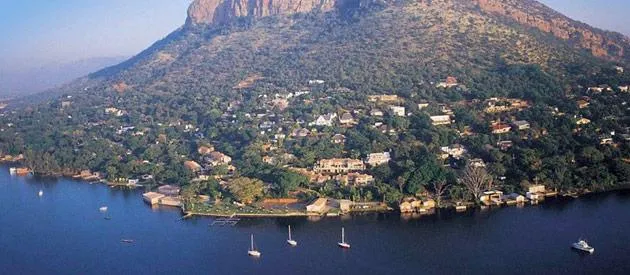'Government encouraged discriminationof blacks' – rights commission finds

The SA Human Rights Commission found discrimination against black people and women at Hartbeespoort Dam.
Image: Hartbeespoort Dam website
THE South African Human Rights Commission (SHRC) has blamed the Department of Water and Sanitation (DWS) for ignoring and encouraging discrimination against black people at the state-owned Hartbeespoort Dam shoreline in the North West.
The area is also where indigenous people are made to feel unwelcome and inferior, according to the South African Human Rights Commission (SAHRC) commissioner, Professor Tshepo Madlingozi when delivering a report.
The release of the report came after an investigation into the discrimination that is taking place with land allocations at the world-class tourism destination, situated in the Madibeng Municipality.
The commission launched its investigation into the unfair treatment of black people after Mmeli Mdluli had complained on behalf of the Hartbeespoort Dam Development Initiative.
Mdluli had complained about the dam’s white residents unfairly discriminating against black people by denying them permission to occupy (PTO) the dam’s shoreline.
The SAHRC found that women in general were also discriminated against when they applied for the PTOs, which favoured mostly white males. This was while white male residents ran businesses without having PTOs.
The DWS was found to have violated Section 9 of the Constitution by failing to promote equality and prevent unfair discrimination.
“Let me be very clear, unfair discrimination is not only due to commission (as) the court has been very clear that unfair discrimination also exists where there is omission,” he said.
He said the DWS had violated the Constitution by failing to provide redress for those who are historically disadvantaged.
“This is the sense that we got in our engagement with black complainants, that ‘it is not only an economic issue, but is about dignity’, ‘we feel humiliated, marginalised and unseen,” he said.
He found that the admitted policy violated Section 33 of the Constitution, which is the right to just administrative action by revoking black people’s PTOs without proper due process.
He also said the Madibeng Municipality contributed to racial tension, leading to the weaponisation of the noise pollution bylaws.
During the investigation, black residents told the SAHRC of the historical and ongoing racial exclusion, which included a pattern of rejection and delay in processing PTO applications.
Black people also complained that police were using bylaws against them under the guise of fighting noise pollution.
White residents denied that they were being systematically racist against black people and instead accused the Madibeng Municipality's security officers of failing to control noise.
Madlingozi said the DWS confirmed that there was discrimination in the occupancy of the dam’s shoreline by saying it was a historical problem dating back to the pre-democratic dispensation.
He said the department also conceded there were administrative weaknesses, which included missing historical lease records, and that it could not account for some of the current occupiers.
“It was confirmed that 16 of the entities were occupying state land without leases or PTOs. Of these entities, three are white male-owned, two are white female-owned, two are black male-owned, one is black female-owned, and eight (others owned by) people of different races and genders," said Madlingozi.
Police had denied to the commission the allegations of bias and failure to investigate all racism cases, without explanation.
The SAHRC found that the department had, over many years, failed to redress racial and gender disparities in providing lease agreements.
He ordered that the DWS must finalise and adopt the lease policy and regulations within 180 days and submit them to the commission.
He gave the department 90 days to audit the occupants of the dam’s shoreline.
Cape Times
Related Topics: